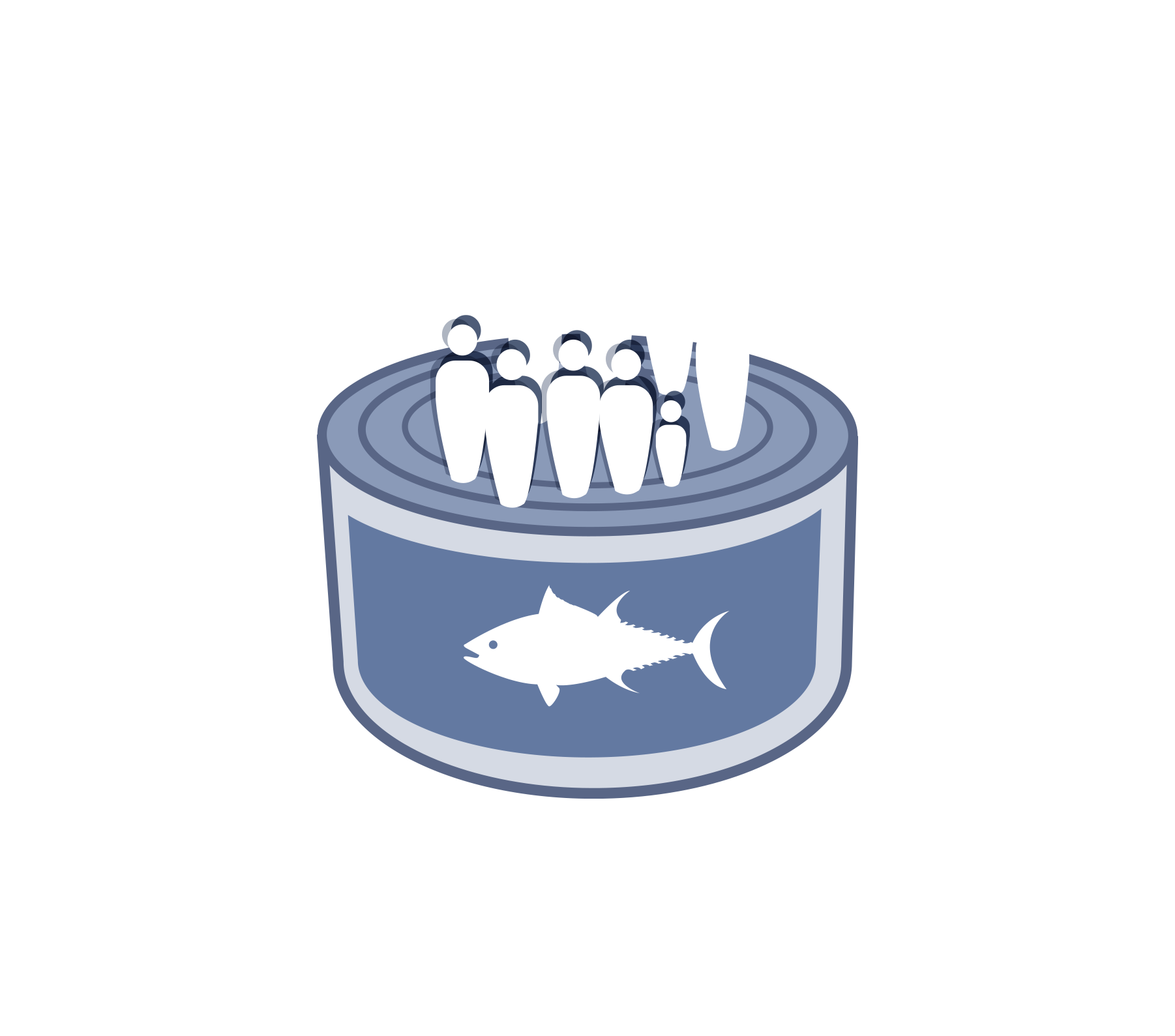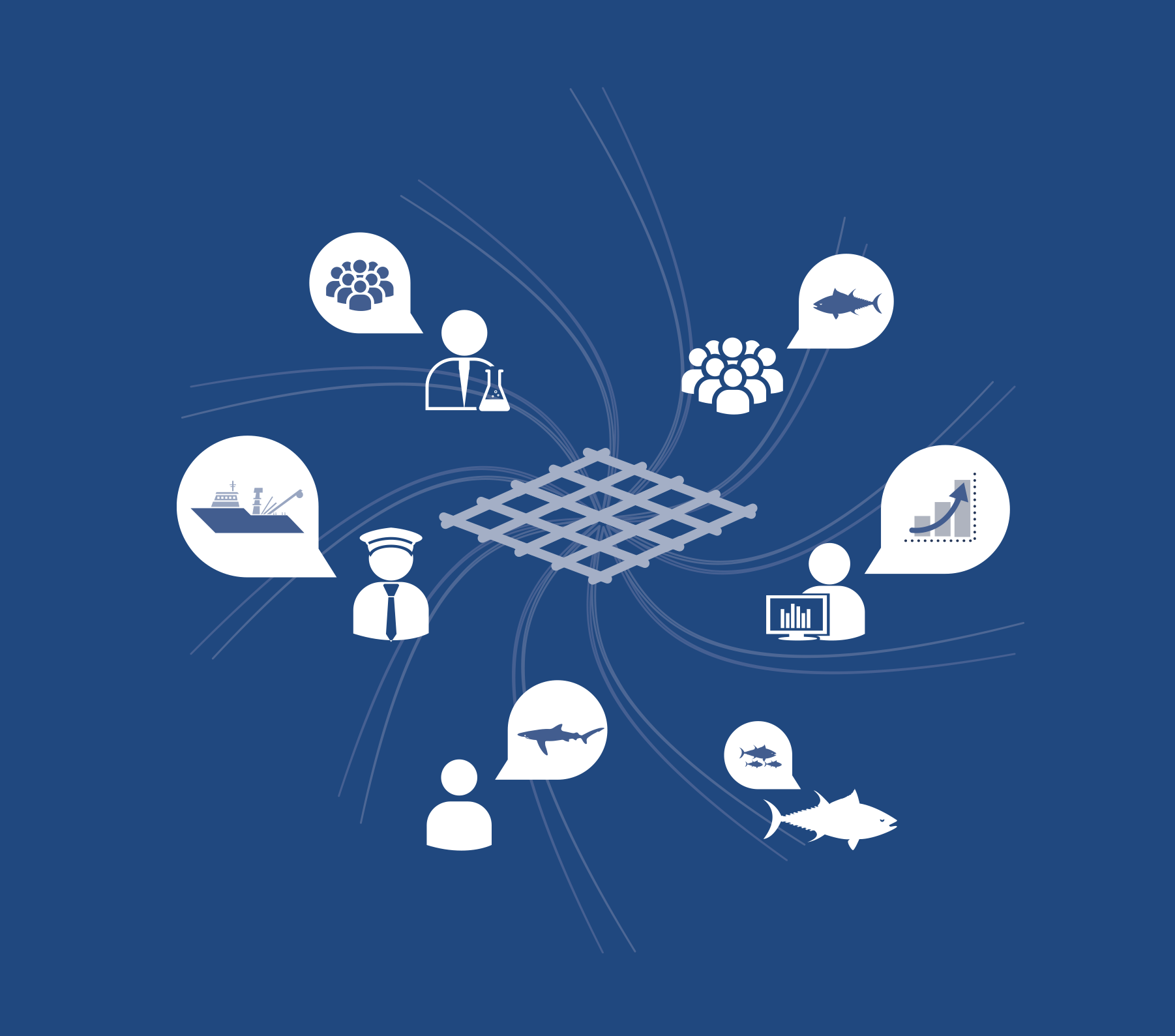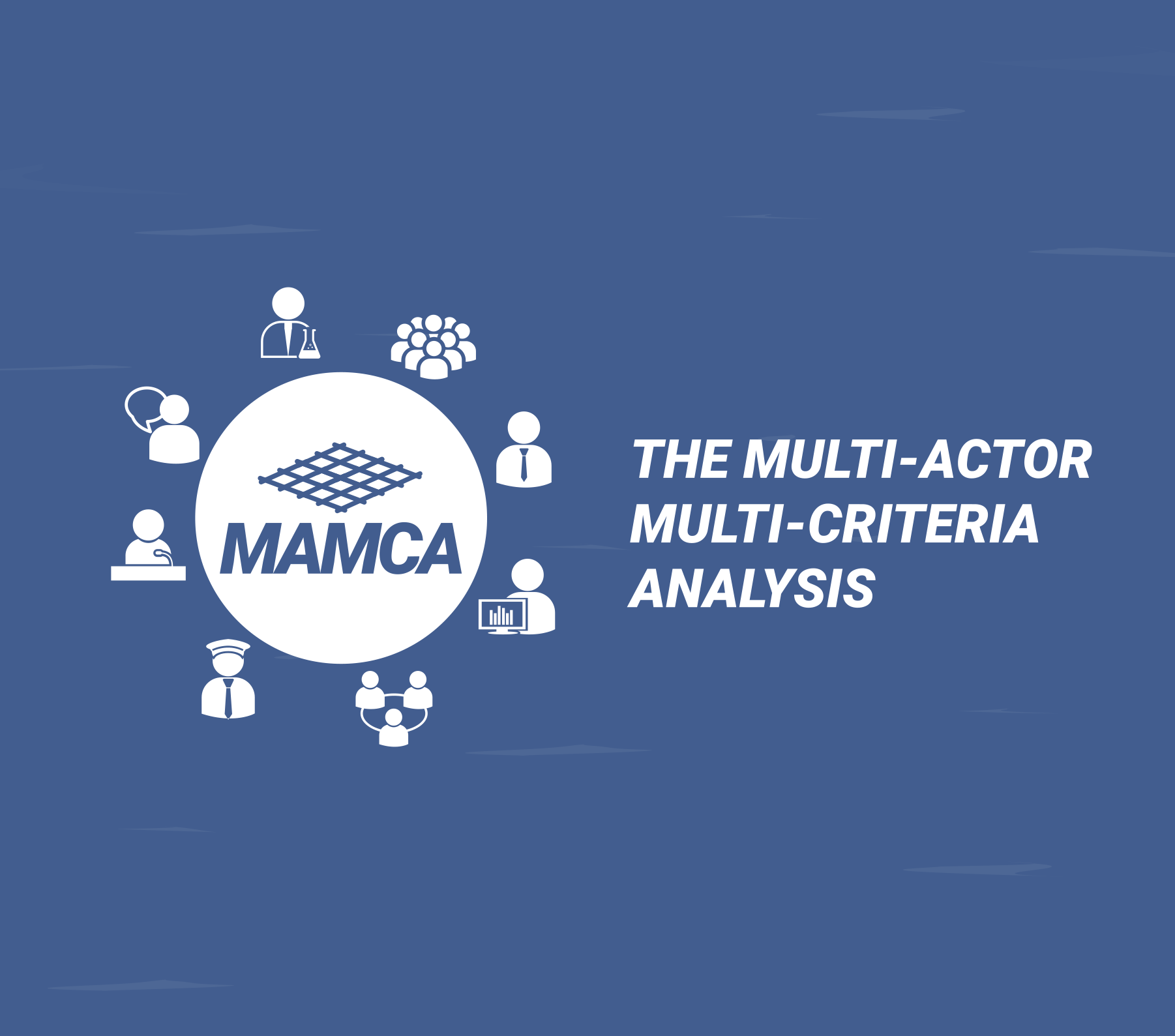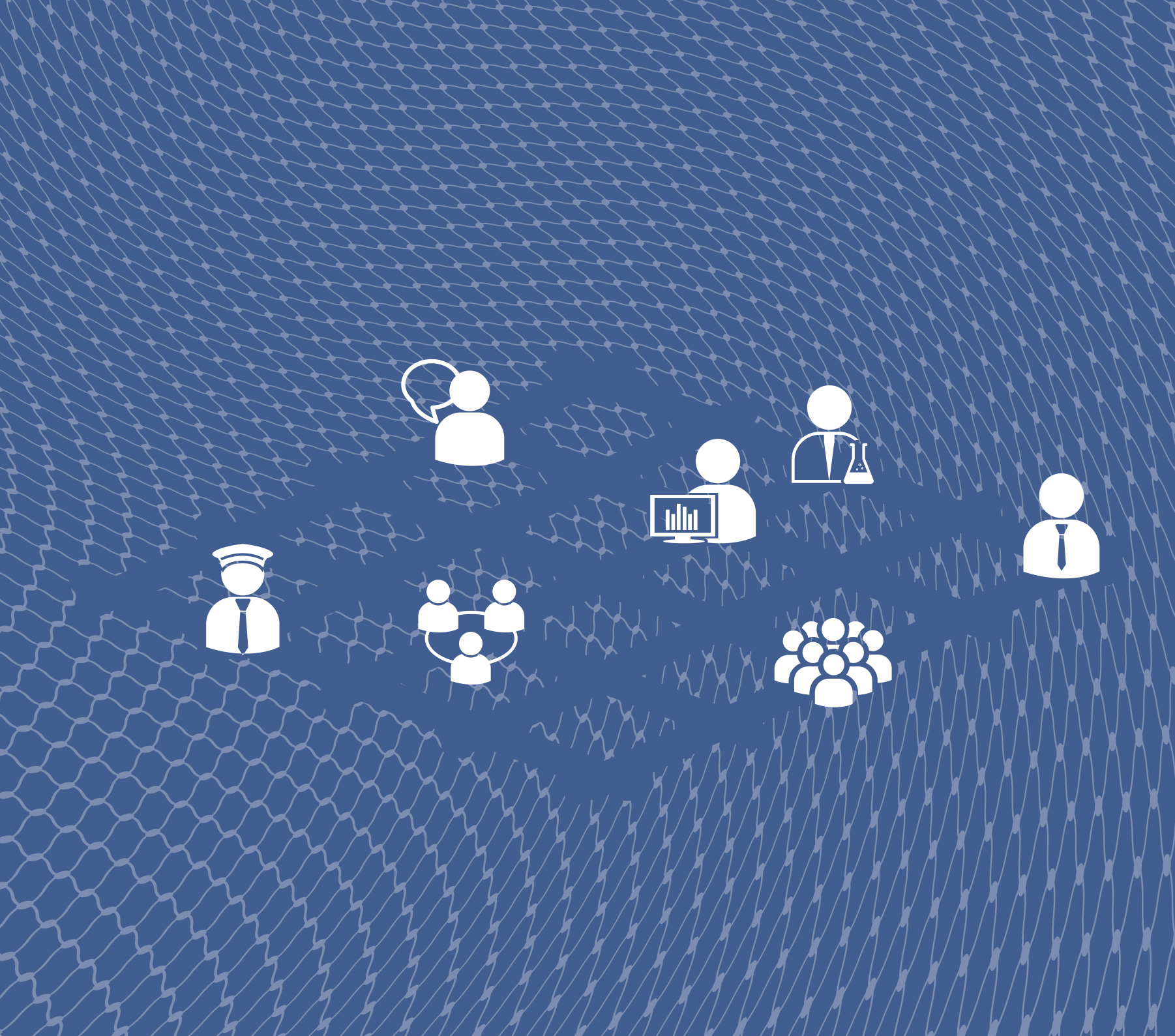SOCIAL
CHALLENGES
CONTEXT
FADs are not simply technologies aimed at increasing fishing productivity and fisher's profits. They generate social issues as fishery stakeholders (fishers, skippers, shipowners, processors, scientists, managers, NGOs…) have different expectations, knowledge, and points of view as to their usefulness and use.
These divergences are a source of conflict embedded in the broader context of the double opposition between exploitation and conservation of marine resources and, concerning the first term of this first opposition, between productivity and sustainability.
FADs fit into an increasingly sophisticated and ramified socio-technical environment.
In parallel to the notions of ecological and fishing trap associated with FADs (see ecological and fishery issues), would these fishing tools generate a risk of socio-professional trap, as the use of FADs profoundly transforms the fishers’ profession along a line they have not necessarily chosen?
The issue of sustainability from the point of view of social sciences therefore arises not only in terms of resource governance, but also in terms of changes in fishers’ professional practices and social inequalities within the sector. Furthermore, an increasingly capital-intensive technical-economic model drives fishery industries, within which FADs generate a form of economic trap through the economic dependence they entail (see economic issues).
These divergences are a source of conflict embedded in the broader context of the double opposition between exploitation and conservation of marine resources and, concerning the first term of this first opposition, between productivity and sustainability.
FADs fit into an increasingly sophisticated and ramified socio-technical environment.
In parallel to the notions of ecological and fishing trap associated with FADs (see ecological and fishery issues), would these fishing tools generate a risk of socio-professional trap, as the use of FADs profoundly transforms the fishers’ profession along a line they have not necessarily chosen?
The issue of sustainability from the point of view of social sciences therefore arises not only in terms of resource governance, but also in terms of changes in fishers’ professional practices and social inequalities within the sector. Furthermore, an increasingly capital-intensive technical-economic model drives fishery industries, within which FADs generate a form of economic trap through the economic dependence they entail (see economic issues).


OBSTACLES
The use of FADs is framed by the structural tension between exploitation and conservation, and it is in this space that the points of view, concerns and issues of the various actors unfold.
These points of view are diverse, often context-dependent, and the same actor can be the bearer of different and even sometimes contradictory visions.
These expectations, points of view and tensions need to be identified, analysed, and scripted to support the objectives of a sustainable management of tuna resources. The analysis should also examine whether FADs can generate a socio-professional trap.
These points of view are diverse, often context-dependent, and the same actor can be the bearer of different and even sometimes contradictory visions.
These expectations, points of view and tensions need to be identified, analysed, and scripted to support the objectives of a sustainable management of tuna resources. The analysis should also examine whether FADs can generate a socio-professional trap.
ACTIONS
1. DESCRIBE AND ANALYSE THE FAD REGULATORY INTERNATIONAL ARENA
The management of tuna fishing fleets is carried out within RFMOs, such as ICCAT and IOTC. These arenas bring together many players having diverging objectives (shipowners, shipowners' unions, NGOs, canners, research institutes, representatives of national ministries).
Over time, the modes of action (e.g., lobbying, financialization, controls, scientific production), the positioning of actors, their different perceptions on the use of FADs and their impacts, will be studied to model the current process of adopting regulatory measures. The analyses will be based on the interests and knowledge in the social, economic and ecological arenas.
To prepare the MAMCA – multi-actor multicriteria analysis – approach (see Management tool), the decision criteria of each actor as well as their weighting will be collected during in-depth surveys.
Over time, the modes of action (e.g., lobbying, financialization, controls, scientific production), the positioning of actors, their different perceptions on the use of FADs and their impacts, will be studied to model the current process of adopting regulatory measures. The analyses will be based on the interests and knowledge in the social, economic and ecological arenas.
To prepare the MAMCA – multi-actor multicriteria analysis – approach (see Management tool), the decision criteria of each actor as well as their weighting will be collected during in-depth surveys.


2. QUALIFY THE EFFECTS OF FADs AND THEIR REGULATION ON THE TUNA FISHERY ARENA
Through in-depth surveys with the different actors and participation on fishing trips on board French purse seine vessels, data will be collected on the points of view, concerns, and issues of the various professions (fishing masters, sailors, captains, association of shipowners, scientists), with particular attention to professions that are absent or underrepresented in decision-making circles for regulatory measures (fishers).
The analysis of these data will facilitate the understanding of the socio-technical transformations of the tropical tuna purse seine fishery, as well as the possible effects of different FAD management scenarios on the evolution of professions in this sector.
Studying the changes in professional practices induced by the use of FADs is a key and original approach to tackle the practical implications (and possible obstacles) associated with FAD management measures.
The analysis of these data will facilitate the understanding of the socio-technical transformations of the tropical tuna purse seine fishery, as well as the possible effects of different FAD management scenarios on the evolution of professions in this sector.
Studying the changes in professional practices induced by the use of FADs is a key and original approach to tackle the practical implications (and possible obstacles) associated with FAD management measures.